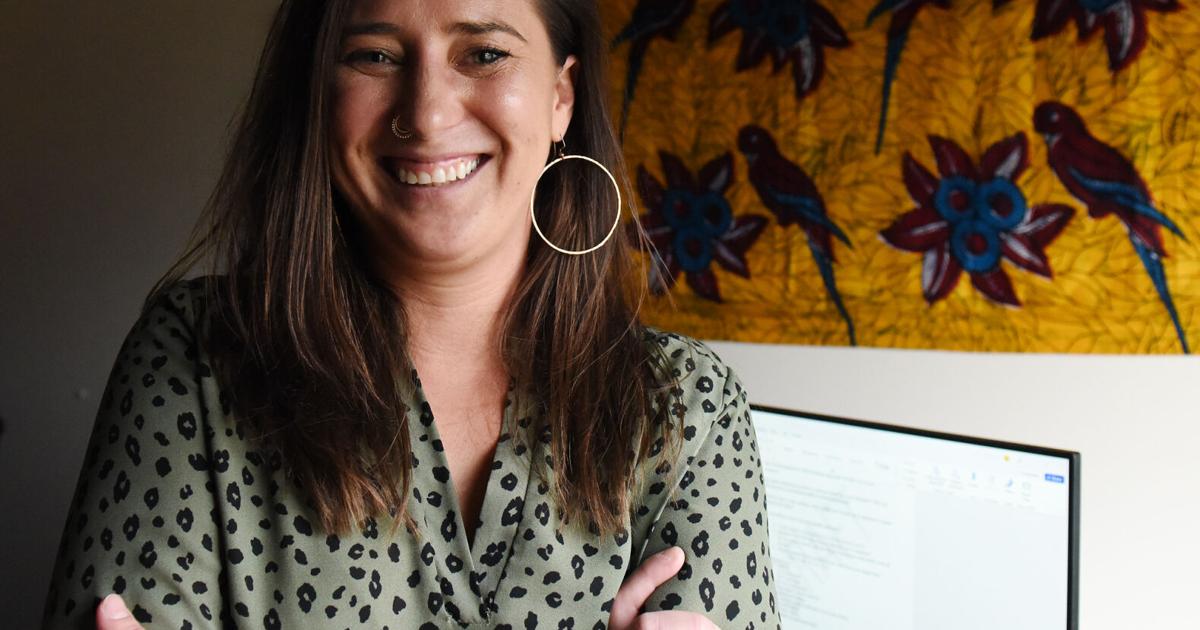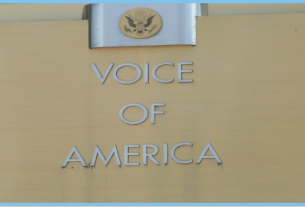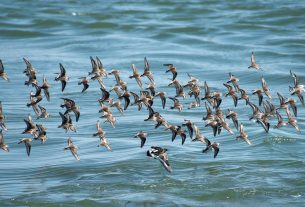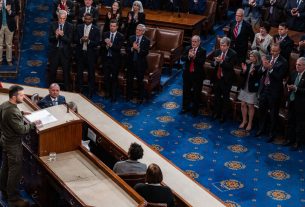Kelly Wilson’s passion for agriculture has led her to help farmers all over the world develop sustainable food systems.
Wilson is assistant director for the MU Center for Regenerative Agriculture, a role she has held since June 2021. Her work involves many aspects of protecting the food chain. For example, she works with residents to ensure the region has a sustainable supply of food and helps Missouri farmers alter their business practices to adjust to a changing climate.
But it’s her experiences in Africa both as a child and later as a researcher that helped shape her interests in humanity and her priorities at work.
Growing up in sub-Saharan AfricaBorn in the Democratic Republic of Congo, and having lived in multiple African countries before the age of 13, Wilson was surrounded by people facing food insecurities from a young age.
“We moved every three to four years, my dad works in public health and so it was kind of project to project,” Wilson said .
“Seeing it directly had an impact, if you have one extreme weather, drought or something, your family could be food insecure for that year, it’s a really prominent issue,” Wilson said.
Having lived in an environment where people are food insecure for a majority of her childhood, Wilson saw first hand how bad food insecurity is for some people in Africa.
Wilson has two parents who work in public health, and the experience of growing up around a lot of food insecurity is one that Wilson attributes to the beginning of her love for agriculture and sustainable food sources.
“My dad definitely had a big influence on me. But I think both my parents instilled in me this really sincere belief that people are equal, even if they don’t have the same situation,” Wilson said.
Moving to the states“I really wanted to be American, or like to have that traditional American high school experience, until I got there and realized that I was probably very different from everybody around me,” Wilson said.
Wilson said the change she experienced when coming to the U.S. for high school was dramatic, and seeing the different access to resources had an immediate impact on her.
“That’s definitely part of the reason I was really involved right away in doing social justice work in high school and I think it’s directly because of that experience,” Wilson said. “Having worked with people in, you know, different levels of food insecurity and different levels of access to resources was really important, and so coming to the U.S. and seeing different access to resources here, that had a big impact.”
Wilson knew right away that when she moved to the United States, and saw the difference in resources, that she wanted to help those who have limited access.
When Wilson started farming the summers between school, she said she had the thought, “Oh, can I combine these interests in wanting people to have resources and like equal access to a good life, right? In the sense of farming and food systems?”
Because Wilson asked herself those questions, she now spends her time helping farmers adapt to the changing climate, protect their crops and develop sustainable food systems.
Wilson did her undergraduate work in anthropology because she also cared about different cultures and learning how people interact with one another.
Research in Burkina Faso, AfricaAfter receiving her doctorate in agricultural extension and education, Wilson began her postdoctoral work as a field project director for a Tufts University research project in Burkina Faso, a country in west Africa.
Her work focused on a commune in Burkina Faso that had benefited from about seven years of agricultural assistance but was no longer receiving
resources. Beatrice Rogers, Wilson’s public information officer at Tufts University said, “The question they were asking is, in this particular commune, where a project was implemented and been the resources were withdrawn, can we look at what was sustainable and what wasn’t?”
The project included interviews of beneficiary households and service providers, followed by two quantitative surveys. The goal was to gather some information about what kinds of things were sustained and what made them sustainable.
Due to the COVID pandemic, Wilson was unable to go to Burkina Faso in person and participate in field work, something she loves doing. But she did the research long distance, using Zoom calls and other tools.
“Kelly had thoughts, she had ideas, and she was going to be an active contributor from the get-go,” Rogers
said. Rogers called Wilson, “God’s gift to our project.”
The conclusions for this research project have yet to be made, and someone else has taken over Wilson’s duties because she is now at the University of Missouri helping farmers.
“It’s interesting for me to see that she’s taking her developing country experience, work in sub-Saharan Africa, and she’s now being asked to sort of re-tool in a way to be appropriate for interventions in the United States,” Rogers said. “That takes a kind of flexibility of outlook, which I think speaks very well of her.”
The biggest lesson Wilson learned from this was the importance of engaging with farmers, and asking them what they care about before trying to do a project to help them.
Rogers added, “I do think that she loves working in sub-Saharan Africa, she feels an affinity for it. And you know, I’m sure someday she will get back into it.”
Helping Missouri farmersWilson joined the MU Center for Regenerative Agriculture as the assistant director in June 2021, shortly after the center launched, and right away she worked with Director Rob Myers in developing a proposal for the project.
“Dr. Kelly Wilson was heavily involved in helping develop the proposal,” Myers said in an interview.
As part of a $25 million grant received by the University of Missouri from the U.S. Department of Agriculture, Wilson will be working with small and underserved Missouri farmers adopt climate-smart practices on their land.
The program will encourage farmers to adopt any number of climate-smart practices, including planting cover crops to prevent erosion and allowing livestock to roam on farm land to improve soil organic matter.
“Rob texted me saying ‘Call me when you can. We have good news’,” Wilson said. “My head immediately turned to ‘How are we going to make this happen’?”
The specific part of the project Wilson will be leading is targeting and tailoring incentive programs for underserved and small farmers.
“That’s exciting because a lot of other incentive programs have the most benefits or the potential to benefit large farmers,” Wilson said.
Wilson noted the importance of the large farmers receiving benefits, and that it is part of the vision to be able to allow all farmers to adopt climate smart agriculture and contribute to addressing and mitigating climate change.
“But we’re excited to be able to reduce barriers that are always there for smaller farmers and for underserved farmers to be able to also contribute and be a part of this,” Wilson said.
The five-year project will start as soon as the USDA gives approval, likely this winter.
“We are excited for these farmers to gain from an opportunity like this,” she said, “one that they don’t usually get to because there’s just too many barriers.”



